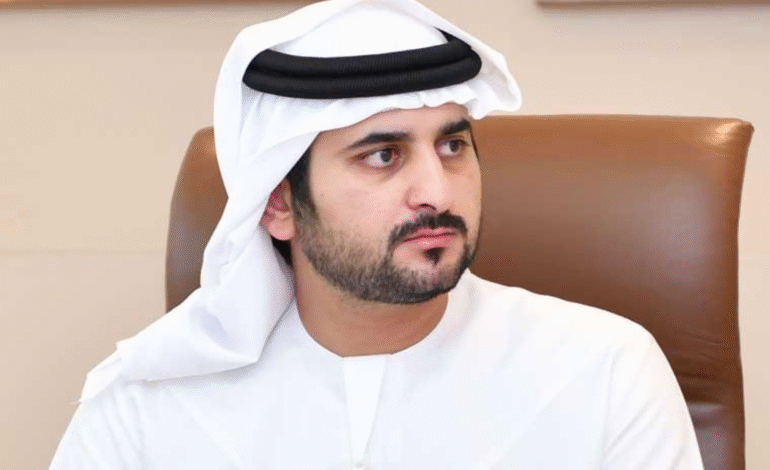Dubai Disciplinary Grievance Procedures 2025 Update

Dubai has taken a significant step toward bolstering transparency, public sector governance, and fiscal accountability. His Highness Sheikh Maktoum bin Mohammed bin Rashid Al Maktoum—First Deputy Ruler of Dubai, Deputy Prime Minister of the UAE, and Minister of Finance—has issued Decision No. (4) of 2025. Acting as Chairman of the Financial Audit Authority (FAA), Sheikh Maktoum approved the operational procedures for the Central Violations Committee and the Grievances Committee.
The new regulations, applying to both employees and high-ranking executives within public entities under the FAA’s scope, seek to ensure that financial and administrative violations are handled fairly, legally, and with respect for employee rights. This step is a continuation of Dubai’s long-term commitment to global standards in public administration, legal equity, and efficient governance.
Central Violations Committee: Structured Enforcement of Financial Discipline
The Central Violations Committee, established under the new decision, will address breaches of administrative and financial protocols within public entities. It targets all organizational levels—from junior staff to executive leadership, including CEOs and higher officials—ensuring a uniform application of rules across the board.
The procedures enshrined in this decision demand objectivity in handling violations. Investigations must be based on evidence and conducted impartially. Every employee has the right to respond in writing to accusations, thereby guaranteeing a transparent and fair hearing.
Penalties issued must be proportionate to the nature of the offense, in alignment with statutory limits. The decision explicitly bans the imposition of multiple penalties for a single violation and mandates that every sanction must be fully justified. These safeguards are designed to prevent misuse of disciplinary powers while enforcing accountability effectively.
Grievances Committee: Safeguarding Employee Rights Through Legal Recourse
To complement disciplinary enforcement, the decision also provides a formal mechanism for employees to challenge decisions that affect their legal status or working conditions. The Grievances Committee now serves as the official body for reviewing appeals within public sector institutions under the FAA.
Employees are entitled to file a grievance within 15 working days from the date of notification. Any appeal submitted after this timeframe will be deemed invalid. This deadline ensures that disputes are resolved efficiently while maintaining the right to due process.
Once a grievance is reviewed and a final ruling is made, both the concerned employee and the public entity must comply with the decision. The relevant government body is also required to notify the Financial Audit Authority once it has implemented the committee’s ruling. This cycle of accountability ensures that all decisions are not only reached fairly but also executed responsibly and disciplinary.
Commitment to Confidentiality: Protecting Integrity and Trust
Another cornerstone of the newly established procedures is confidentiality. All discussions, documents, and records generated by the Central Violations and Grievances Committees are to remain confidential. Disclosure is permitted only with prior approval from the Director General of the Financial Audit Authority and strictly when it serves the public interest.
This commitment to discretion ensures that sensitive cases are handled with care and integrity. It also protects the reputations of individuals involved while maintaining the credibility of the investigative and appeals processes. Confidentiality plays a critical role in ensuring the legal robustness and ethical reliability of Dubai’s disciplinary systems.
Institutional Support for Legal Implementation and Administrative Efficiency
The Financial Audit Authority will provide comprehensive support to both the Central Violations and Grievances Committees. This includes technical assistance, legal guidance, administrative tools, and other resources necessary to ensure that committees function efficiently and lawfully.
The foundation for this support lies in Law No. (4) of 2018, the legislative basis for the FAA’s operations. The provision of institutional backing ensures that committees can act independently, without interference, and in full compliance with applicable laws and procedural standards.
This integration of technical and administrative support strengthens the enforcement of financial governance and makes the FAA an even more robust institution in Dubai’s public accountability landscape.
Promoting a Culture of Compliance Across Public Institutions
By institutionalizing clear disciplinary and grievance mechanisms, Decision No. (4) of 2025 is expected to enhance overall compliance within Dubai’s public sector. With transparent processes now in place, employees are more likely to adhere to established rules, knowing that any violation will be dealt with fairly and that they have access to redress if unjustly treated.
This approach not only increases internal discipline but also builds a workplace culture rooted in responsibility, legal awareness, and procedural integrity. A transparent environment where rules are applied consistently is key to retaining talent, improving morale, and reducing conflicts within government entities.
Balancing Public Finance Oversight with Employee Protection
The new procedures reflect a deliberate effort to strike the right balance between protecting public funds and safeguarding employees’ legal rights. The financial governance system under the FAA now includes mechanisms that ensure accountability without undermining individual dignity or fairness.
Through proportionate penalties, access to appeals, and strict confidentiality requirements, the framework enhances the reliability of Dubai’s public institutions. Employees benefit from clear expectations and guaranteed rights, while public entities gain stronger financial oversight and operational discipline.
This balance helps maintain stability within the workforce and reinforces Dubai’s image as a leader in responsible government.
Strengthening Legal Infrastructure for Sustainable Public Governance
Decision No. (4) of 2025 builds on the legal mandate of Law No. (4) of 2018, bringing the vision of the Financial Audit Authority into clearer operational focus. The new procedures transform high-level legal principles into actionable steps, giving institutions the tools they need to manage internal conduct effectively.
This enhancement of the legal infrastructure helps reduce ambiguity and ensures consistent application of the law across departments. It minimizes the risk of administrative errors or subjective enforcement and promotes trust in the public sector’s internal systems.
With these systems now codified, the government sets a precedent for legal clarity and structured public governance that aligns with global best practices.
Setting New Standards for Institutional Governance in the Region
Dubai’s implementation of these new disciplinary and grievance procedures represents more than internal reform—it’s a model for administrative excellence in the region. The emirate continues to lead by example, showing how structured legal processes can coexist with fairness, integrity, and operational efficiency.
For international investors, public-private partners, and global observers, this move underscores Dubai’s commitment to high standards of accountability, transparency, and professional management in public administration.
These reforms not only serve Dubai’s internal governance objectives but also enhance its competitiveness on the global stage, positioning the city as a benchmark for excellence in institutional oversight.







